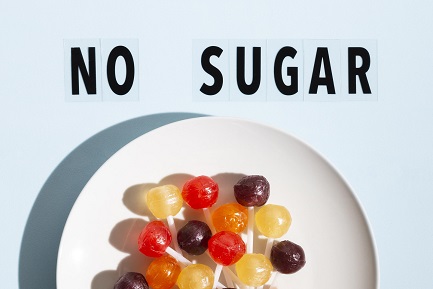Explaining Sugar Intake and Sugar Detox Guidelines:
- Sugar, also known as sucrose, is a sweet carbohydrate commonly used as a sweetener in foods and beverages. It is common in many plants, including sugar cane and sugar beets. Sugar is formed by the combination of two simple sugars (glucose and fructose).
- Glucose is the energy source of body cells and an important fuel for many bodily functions. When we consume sugar or other carbohydrates, our body breaks them down into glucose, which is sent through the bloodstream to provide energy to our cells. Fructose is also the second type of sugar found in fruits, some vegetables, and honey. It is sweeter than glucose and has a distinct flavor.
- Sugar is widely used as a sweetener in many foods and beverages, including desserts, baked goods, desserts, beverages, and snacks. This adds sweetness to products and enhances their flavor.
- Although consuming moderate amounts of sugar can be part of a healthy diet, it is important to remember that excessive consumption is linked to many health problems, including weight gain, obesity, type 2 diabetes, and dental problems. For this reason, it is recommended to consume sugar in moderation and pay attention to all the sugar content of your food.
How much Sugar in a Day?
The amount of sugar one should consume in a day can vary depending on factors such as age, sex, overall health, and physical activity level. The World Health Organization (WHO) provides guidelines for the consumption of natural sugars in honey, syrups, fruit juice, and juice concentrates, as well as added sugars, which are sugars added to foods during processing or preparation.
According to the WHO, it is recommended that both adults and children limit their intake of added sugars to no more than 10% of their total daily energy intake. Ideally, it is even better to aim for less than 5% for additional health benefits. This means that if you consume 2,000 calories per day, no more than 200 calories (or 50 grams) should come from added sugars.

It’s important to note that these recommendations refer to added sugars and not the natural sugars found in fruits, vegetables, and dairy products. These natural sugars are generally accompanied by essential nutrients and fiber, which can have different effects on the body compared to added sugars.
Remember to read food labels carefully and be mindful of the sugar content in processed foods, beverages, and snacks, as they often contain significant amounts of added sugars. Opting for whole, unprocessed foods and drinks like water or unsweetened tea can help you reduce your sugar intake. Consulting with a healthcare professional or registered dietitian can provide personalized recommendations based on your specific needs and health goals.
What happens if you eat too much sugar in 1 day?
The American Heart Association (AHA) recommends that older women limit added sugars to no more than 100 calories per day (about 6 teaspoons or 24 grams) and no more than 150 calories per day (about 9 teaspoons or 36 grams of sugar) mostly men but when you eat too much sugar in a day then serious health problem may occur.
Some people experience the following symptoms after eating sugar:
Low energy: A study found that 1 hour after eating sugar, participants were more tired and less alert than a control group.
Depression: A prospective study in 2017 found that greater health was associated with increased levels of depression and negative emotions in men.
Bloating: Some types of sugar can cause bloating and gas in people with digestive issues such as irritable bowel syndrome (IBS) or small bowel syndrome (SIBO), according to a study from the Johns Hopkins University Medical Center.
What to do when eat too much sugar?
If you eat too much sugar and feel sick or want to lessen its effects, here are a few steps you can take:
Stay hydrated: Drink plenty of water to rid your body of excess sugar and stay calm. to follow. Avoid drinking soft drinks as they can make the pain worse.
Take a walk or do physical activity: Physical activity can help your body metabolize sugar properly and lower blood sugar. A brisk walk or some form of exercise may be good.
Choose fiber-rich foods: add fiber-rich foods at the next meal. Fiber helps reduce the absorption of sugar in the blood and may support good diabetes management. Choose grains, vegetables and fruits.
Eat protein and healthy fats: Protein and fats can help keep blood sugar levels stable. Include lean meats, eggs, nuts, seeds, and avocados in your diet.
Do not eat more sweets: Resist the urge to eat more sugar or soft drinks. This will prevent blood sugar spikes and help your body recover faster.

Consider herbal teas: Some herbal teas, such as green tea or cinnamon tea, help control blood sugar. They can be a great alternative to soft drinks and provide additional health benefits.
Practice health and wellness: Watch your portions and adopt healthy eating habits to avoid eating too much sugary food in the future. This helps prevent similar situations from occurring.
Talk to a doctor: If you’re still uncomfortable or worried about your health, it’s best to see a doctor. Your doctor can provide personalized advice based on your situation.

[…] Benefits of Sugar: Sugar Intake and Sugar Detox Guidelines? […]